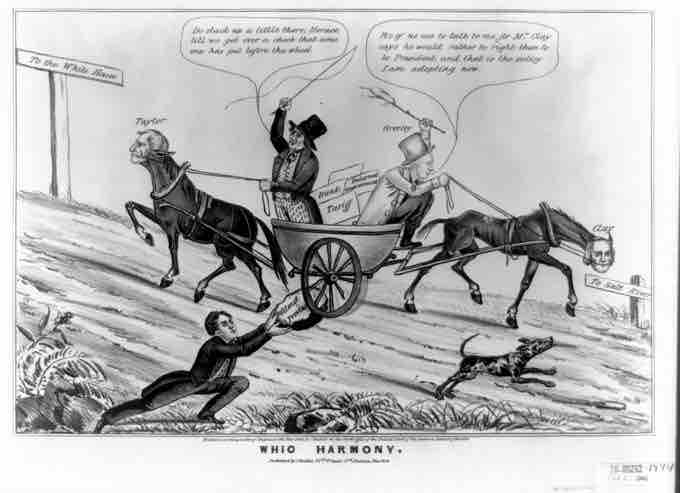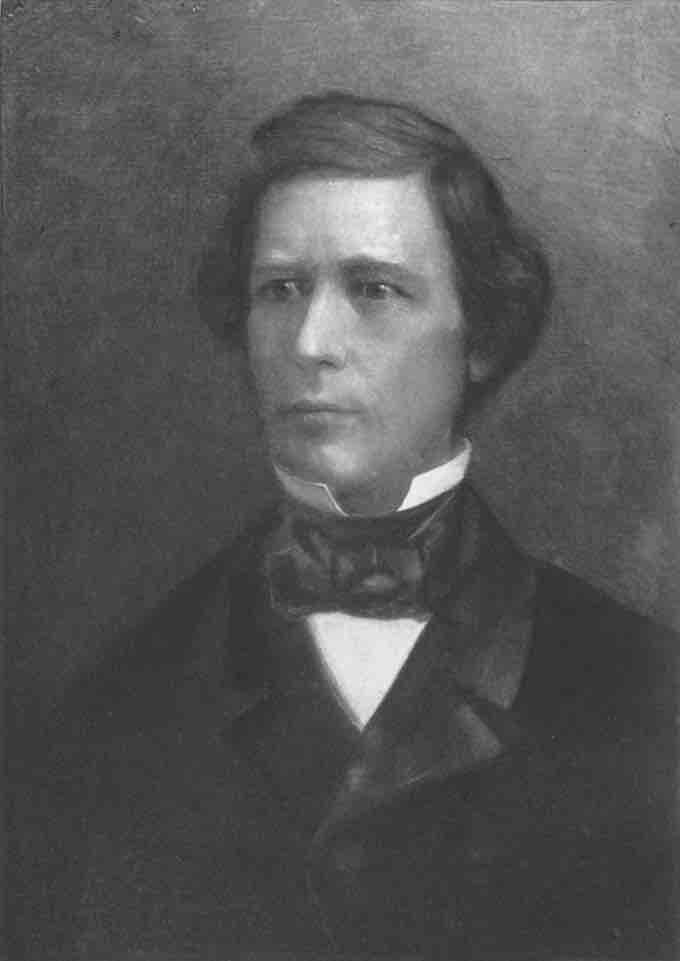The Wilmot Proviso
The Wilmot Proviso, as proposed by Congressman David Wilmot, would have banned slavery in any territory to be acquired from the Mexican War. The result was a violent sectarian debate in Congress that forced political leaders to make numerous compromises to determine the slave issue in the newly acquired U.S. territories.

"Whig Harmony"
A cartoon depicting the ideological split within the Whig Party in the lead up to the June 1848 convention; the Wilmot Proviso was the ultimate obstacle to presidential hopeful Zachary Taylor as he attempted to court Southern support for his campaign.
Background and Context
After the capture of New Mexico and California in the first phases of the Mexican War, political focus shifted to how these new territories would be divided between slave and free states. The Wilmot Proviso, proposed in August 1846, rapidly brought the issue to the political forefront. David Wilmot, a Pennsylvanian Democrat, drafted legislation that decreed, "neither slavery nor involuntary servitude shall ever exist" in any of the new territory acquired from Mexico, including Texas and California. For many Southerners, the Wilmot Proviso forced the issue of slavery as a central component of the Mexican War. Led by John C. Calhoun, Southern slaveholders claimed that the federal government had no right to curtail the spread of slavery into any new territories, claiming that it was each individual state’s right under the principle of state sovereignty to determine whether or not its territory would be free or permit slavery.
In the North, many abolitionists and radical antislavery proponents embraced the Wilmot Proviso. Furthermore, the Wilmot Proviso found support among those who were apathetic on the slave issue, such as David Wilmot himself. For Wilmot and other Whigs, slavery was a fundamental threat to the United States not because of its brutality or coercive structure, but because it encroached on the rights of white freemen to labor and cultivate new lands in the West. In other words, for most Northern politicians, the concern was to protect free yeoman farmers’ access to land and socioeconomic opportunities in the West from the slave states of the South that sought complete domination and infiltration of any new territory in order to perpetuate plantation agriculture.
The Wilmot Proviso was killed in the Senate, but the debate it sparked revealed a fundamental divide between Northern and Southern politicians, which translated to a national sectarian split over the governance of new territories. Increasingly, both sides came to see each other as threats to national progress and prosperity.

Portrait of David Wilmot
Congressman David Wilmot proposed the Wilmot Proviso in 1846.